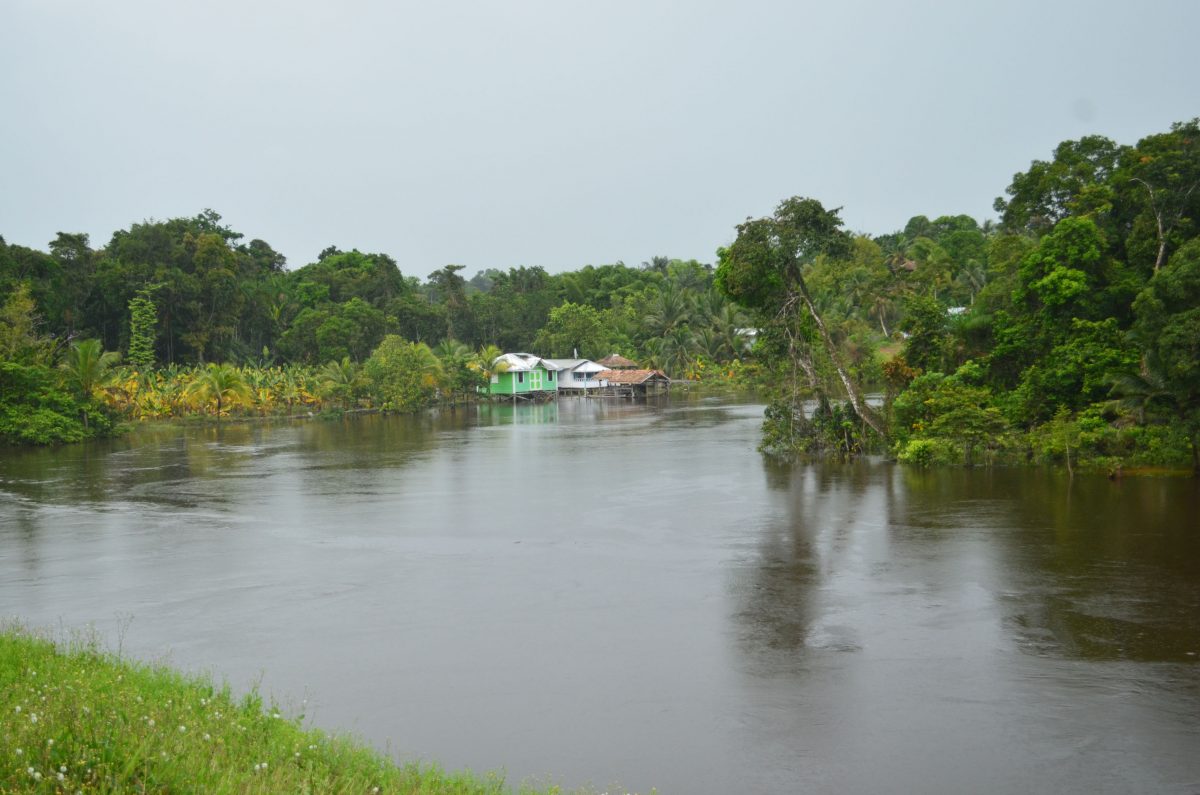Upper Pomeroon communities are in dire need of potable water as they continue to battle the effects of severe flooding over the last three weeks.
As of yesterday, residents of Karawab, Bat Creek, St. Monica, Kabakaburi and surrounding communities in Region Two stated that their access to clean water is limited.
While some residents harvest rainwater for domestic use, many in the villages are unable to do so since they do not have the adequate infrastructure. They have now become reliant on their neighbours who are equipped with tanks and other facilities.
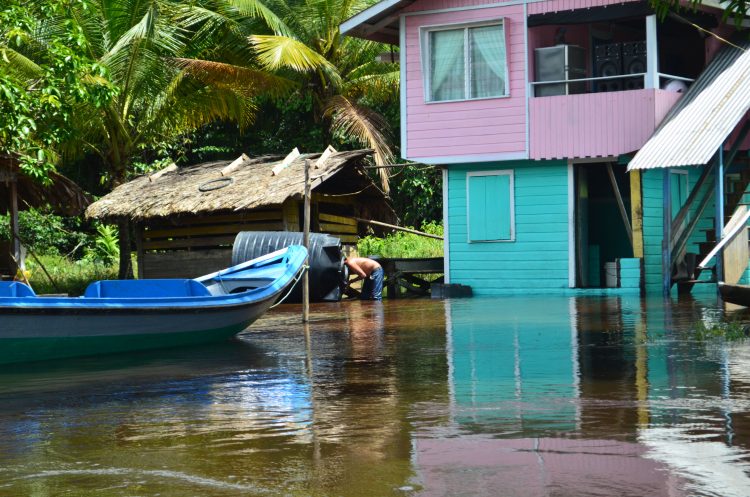
The Pomeroon River has been the main water source for these communities but since the flooding which started three weeks ago, the river has become contaminated with dead animals, sewage and stagnated water.
This forced residents to harvest rainwater and keep in storage containers to use during this period.
Director General of the Civil Defence Commission (CDC) Lieutenant Colonel Kester Craig, said that the Regional Democratic Council is tasked with providing water for consumption and domestic use to affected households. He explained that from the CDC’s end they are providing tablets and bleach to purify water. However, he said if the regional authorities recognise the need for bottled water to be distributed and storage containers they will make a request to his agency and they will fulfill it.
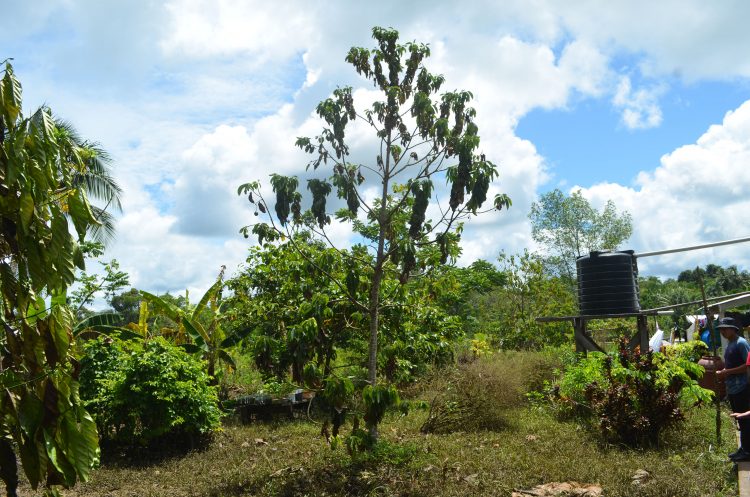
“Some of us can do it but many of our fellow people do not have water to use in their homes. They have to come and beg us for some or come to the village council compound and fetch water from the tanks here… we need water and chlorine pills to treat the water,” Tressa Daniels, resident of Karawab related during a visit by Stabroek News to the area yesterday.
For a few residents, it has been difficult to travel to the hill top to the village to secure water and then take it back up the river to their homes.
“Only this morning, I had to come and collect water for us to cook and drink. You gotta paddle across the river in your canoe and full up your water and then paddle back slow, slow and take it home. It is very, very hard for us at this time”, a Community Service Worker, Lennox Edwards related.
With water levels climbing to close to 14 feet in some areas during the flood, residents of the communities said that their water tanks and other large storage containers floated away. This has made it even more difficult for them to catch and store rainwater.
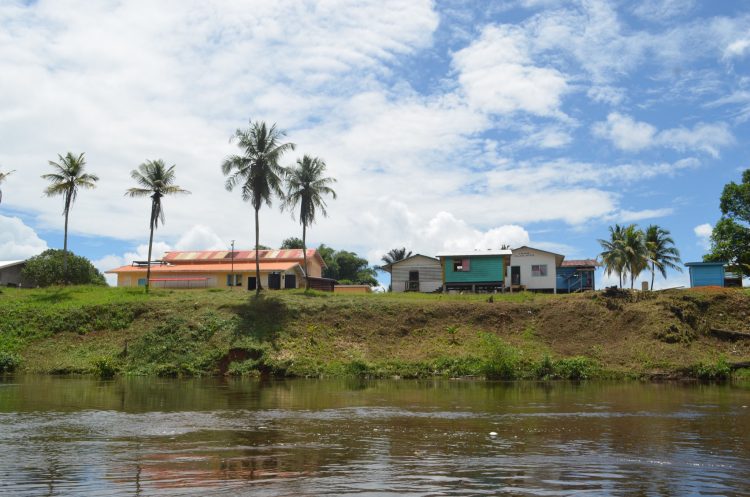
Haul
A councillor of the Karawab Village Council, Linden Cortman said he had to haul his black tank from down the river back to his home yesterday morning.
“I was out of the village working and only yesterday (Sunday) I return and this morning (Monday) I had to go bring back my tank from down the river. This flood come carry away everybody’s tanks and barrels they use to store water. When the river pull everything go with it,” he explained.
Another Karawab family explained that because of the flooding they had to move in with relatives. However, they have no storage facility to trap water from rainfall and as a result they have become dependent on another family member who has a storage tank.
“It is not easy for us, we cannot get to keep the rainwater because we don’t have anything to keep it in. How much we pots and bowls can keep?” the woman questioned, before relating that all their jars and some buckets floated away during the height of the flood.
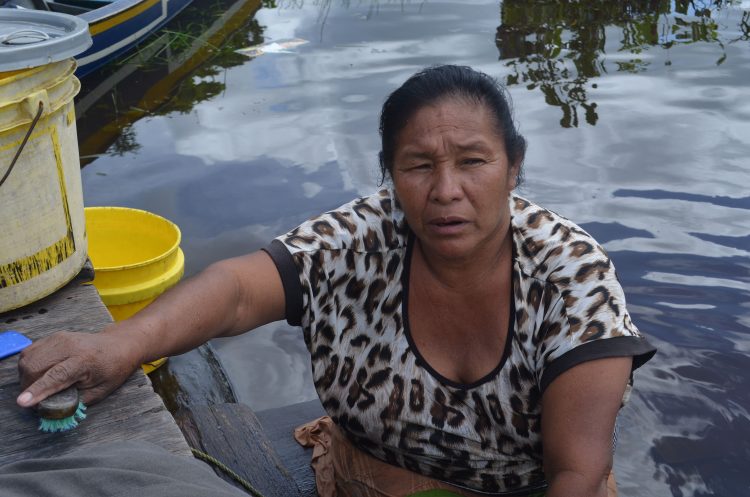
In St. Monica residents echoed similar sentiments and also called on authorities to supply them with water.
“This water is beginning to smell and it is flowing into the river. One and two persons already getting diarrhoea, we cannot use this water. Even if we boil it, it is not healthy for us to use,” said Joycelyn Brathwaite.
Since the floods, Brathwaite said her seven grandchildren along with their parents have moved in with her, increasing their need for potable water.
Another resident, Pauline Edmonson related that in many instances they are forced to use water from the river as they have to conserve the little water harvested for consumption.
“We have no other choice but to use the river water to bathe and wash wares. It is not healthy for us but we have no other choice. If we want water to drink and cook we have to keep the little rain water we have because we don’t have these black tanks and the well from here is the same river water,” she lamented.
Over in Kabakaburi, the drinking water plight was highlighted further and while more residents here have tanks, water from the river is still used.
“Rains have eased three days now and the water we have we are trying to save it to drink because we don’t know if the rain is going to stop now or what, but it hasn’t fall for three days so for now we are using the river water,” Carla Simon said as she washed her clothes at the riverside yesterday.
The affected residents said that they remain hopeful that President Irfaan Ali will keep his promise to assist them during this period.
During Ali’s visit to the flood-hit communities last week, he promised “We are going to do everything to secure back your livelihood. We are going to do everything to get you back to the farmland; we are going to do everything to help back the household.”
He also told affected residents that “If there is any need in terms of shelter, you have to talk to the CDC now so we can make those arrangements, and we have to ensure that you have access to primary healthcare services that are necessary under flooded conditions.”
